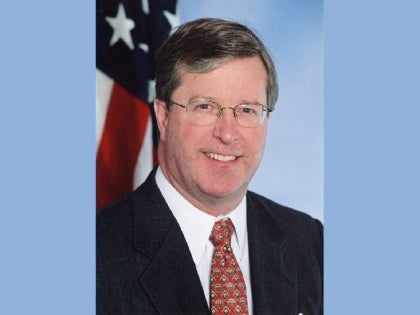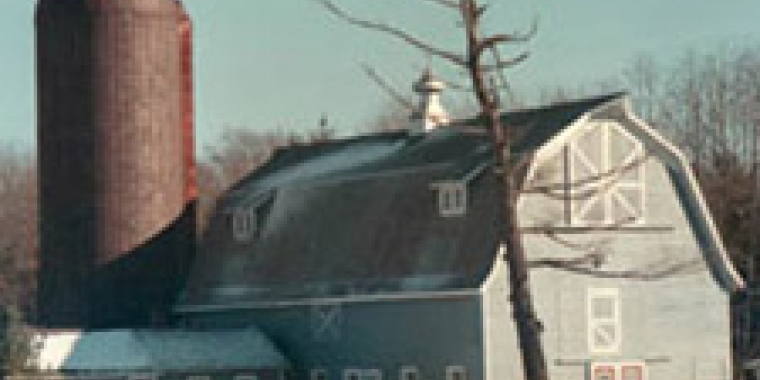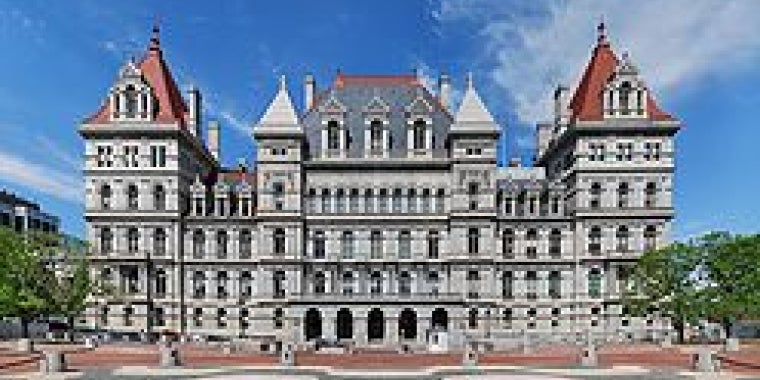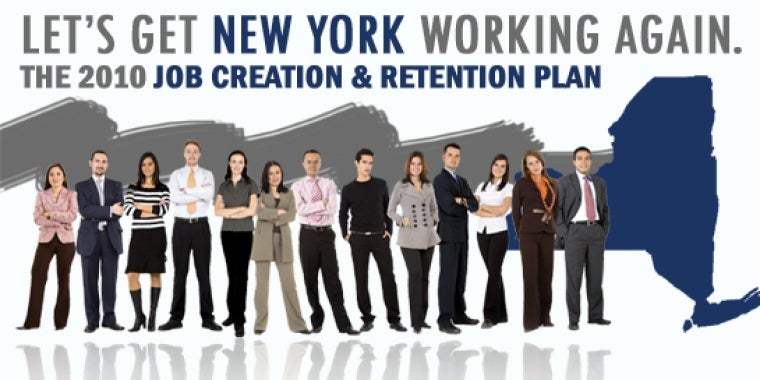
State, Local Leaders Issue Report On The Future Of Rural New York

Albany, N.Y.-- State Senator George H. Winner, Jr. (R-C, Elmira), chairman of the New York State Legislative Commission on Rural Resources (LCRR), has released a report, "A Vision for Rural New York," summarizing the efforts of state and local leaders from across New York over the past year to examine and develop specific priorities to address many of the key short- and long-term challenges confronting New York’s rural regions, including economic and workforce development, health care and education.
"A Vision for Rural New York" reviews a yearlong effort, known as the "Rural Vision Initiative," spearheaded by the LCRR and Cornell University’s Community and Rural Development Institute (CaRDI), Department of Development Sociology and Cornell Cooperative Extension. The LCRR is a joint, bipartisan commission comprised of 10 members of the State Legislature chaired by Winner and Assemblyman David Koon (D-I, Perinton).
"One of the real bright lights of this effort is a heightened awareness of the key challenges facing rural communities across New York," said Winner. "Now we need to rally more widespread support for action on a strategy to strengthen rural New York’s future."
"There were many questions and priorities identified during the Rural Vision process that further research can address," said Max J. Pfeffer, chair of the Department of Development Sociology. "As New York State’s land grant institution, it is Cornell’s role to help bring evidence-based research results to the table, and to work with policy makers and stakeholders across the state."
Helene Dillard, director of Cornell Cooperative Extension, said, "Our Cornell Cooperative Extension Associations across the state underscore that there are common rural issues and also regional complexities that need to be taken into account as strategies are considered."
Eleven regional listening sessions and a statewide Future of Rural New York Symposium were the major components of the Rural Vision Initiative. The first phase of the project involved a series of 11 regional listening sessions held across the state between late December 2005 and May 2006. More than 300 participants attended a listening session in their region, providing valuable information and identifying the challenges facing their communities. (To view a copy of the Phase I Report,click here.)
The second phase of the project took place in July 2006, the Future of Rural New York Symposium, drew more than 200 state and local legislators, state agency representatives, business and agriculture leaders and other officials, Cornell Cooperative Extension educators, Cornell researchers and faculty. Participants identified priorities in 10 major policy areas including rural economic development; workforce development; agriculture and food systems; land use, environment and natural resources; health care; transportation; schools and youth; housing; local government; energy; community capacity and social networks.
Building on last year’s effort, Winner, Koon and other members of the LCRR will continue to advance a "Rural New York Agenda" in the 2007 legislative session, a comprehensive package of legislation for rural regions. Key priorities identified in the new "A Vision for Rural New York" report include:
> improving broad band telecommunications infrastructure and access for rural economic development and farm businesses, health care, and local government capacity building;
> coordinating and consolidating programs that support rural economic development;
> ensuring that the state’s economic development programs channel aid into communities, not just large companies;
> encouraging county partnerships in regional agricultural development;
> educating citizens, consumers, public officials and farmers on critical agriculture and food issues;
> linking energy development in rural New York to economic development;
> integrating agriculture and farmland protection, natural resource protection, and environmental planning in a multifaceted training and outreach curriculum;
> providing funding for continuing education on timber theft for local law enforcement and judicial officials;
> expanding rural health networks and the promotion of wellness/prevention as a new state health model;
> relaxing state and federal agency restrictions on human service agency providers to encourage the sharing of vehicles and services for improved public transportation in rural areas;
> linking local planning to adequate low income housing opportunities in rural communities that face urban gentrification and second home growth;
> reviewing and reforming methods of financing local government and emergency services, including an excessive reliance on the property tax to support schools, town and village government;
> viewing the rural school as a community center engaged in shared resources including health care, family education and counseling, shared broad band connection for computer labs and public access;
> recognizing rural schools as a bridge out of poverty, ensuring a high quality education leading to success in school, employment and civic engagement, including community colleges, BOCES and technical program offerings, and pre-K literacy; and
> creating regional, database-driven interactive web sites which directly link and service all levels of education, business personnel and prospective employees as well as human service agencies to current and future workforce needs.
Next Steps
As next steps the rural vision partners recognize that the proposals identified in the "Vision for Rural New York" report are not necessarily all encompassing and may require further clarification and input from interested parties. Also, not all identified priorities and proposals presented will require legislative action. Some initiatives will naturally fall within the province of local or regional entities, including non-governmental organizations, and state or federal agencies to address. And some priorities require further research. In these cases Cornell will assist in identifying those areas where further research is needed.
The LCRR will draft legislative and/or regulatory proposals as appropriate in cooperation with legislative committees and state agencies, which will be reviewed with interested stakeholders for their input. Winner, speaking before participants at the Future of Rural New York Symposium last summer, said, "We need a rural New York agenda that is embraced across a wide spectrum of New York government. It’s a blueprint for the future we envision."
Copies of "A Vision for Rural New York" may be obtained from Winner’s office, by calling the LCRR at 518-455-2544 (or e-mail ruralres@senate.state.ny.us), or it may be downloaded from the following web site.



